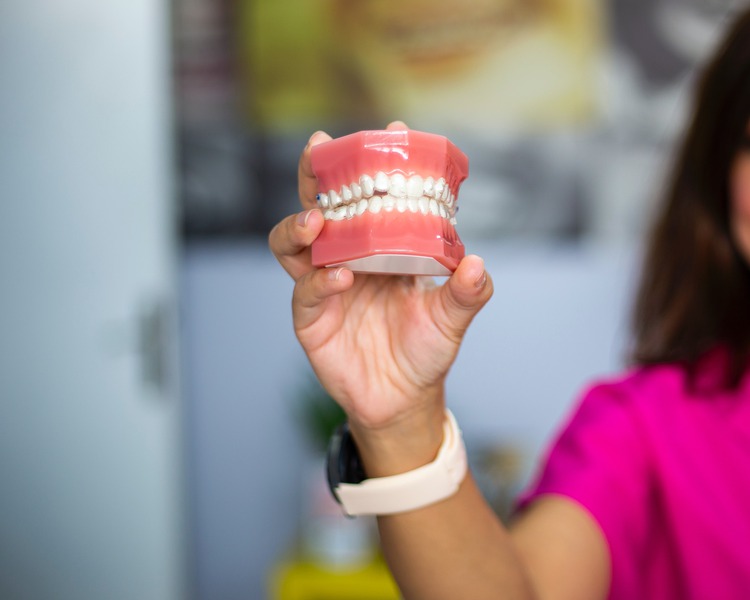How to Prevent Dental Emergencies?
Dealing with a dental emergency can be a stressful experience, and while you can’t predict when they’ll occur, there are steps you can take to minimize the chances of them happening. Whether it’s during the sunny days or the cold nights, your dental health should always be a priority. From maintaining good oral hygiene to understanding the importance of professional dental care, let’s explore the ways you can keep your smile safe and sound.
Maintaining a healthy mouth is the first line of defense against dental emergencies. Your oral health is more than just shiny teeth; it’s about keeping the entire mouth, including your gums and tongue, free from disease and decay.
1. Daily Oral Care Routine
A solid daily oral care routine can help you avoid unwanted visits to the dentist. Brushing twice a day, flossing regularly, and using mouthwash can go a long way in preventing emergencies.
-
Brush your teeth for two minutes twice daily using fluoride toothpaste.
-
Floss daily to remove plaque and food particles that your toothbrush can’t reach.
-
Finish your routine with a mouthwash that can reduce bacteria and freshen your breath.
2. Eating Right for Dental Health
Your diet significantly affects your dental health. Sugary snacks and acidic drinks can erode enamel and lead to cavities or infections. Opt for choices that promote strong teeth and gums:
-
Crisp, fresh fruits and vegetables help clean plaque from teeth and freshen breath.
-
Calcium-rich foods like dairy products strengthen tooth enamel and bones.
-
Water helps wash away food particles and keeps your saliva levels high.
3. Professional Dental Checkups
Regular dental checkups are vital in catching problems before they turn into emergencies. A dentist can spot early signs of decay, gum disease, and other issues that might not be visible or painful at first. Consider professional restorative dentistry Aurora for comprehensive care that keeps your teeth in tip-top condition.
4. Investing in Long-Term Dental Health
Investing in your dental health today can save you from painful and costly procedures tomorrow. This includes considering durable solutions like dental implants for missing teeth.
Dental implants are a long-lasting solution for replacing missing teeth, and they can prevent shifting of the surrounding teeth, along with other issues. They function like natural teeth and are becoming a popular choice for long-term dental health. When exploring options, consider Fox Valley Dental Care implant solutions, which provide expert care and high-quality implant services.
5. Protective Dental Gear for Sports
If you or your children are involved in sports, wearing a mouthguard can prevent traumatic tooth injuries. Custom-fitted mouthguards from your dentist provide the best protection and comfort.
6. Recognizing When to Seek Immediate Help
Sometimes, despite your best efforts, a dental emergency can occur. Knowing when to seek immediate help can make all the difference in saving a tooth or preventing severe complications.
Watch for the following signs that indicate you need to get more details from an emergency dentist:
-
Severe toothache indicating possible infection
-
Knocked-out tooth, which requires immediate attention
-
Swollen jaw or mouth, which could suggest an abscess or serious infection
7. Special Considerations for Children and Seniors
Children and seniors require special attention when it comes to dental care due to their unique needs and vulnerabilities:
Children
-
Children are prone to dental emergencies and accidents, especially during play or sports activities. It’s essential to encourage safety measures such as wearing mouthguards during sports and avoiding chewing on hard objects to prevent dental injuries.
-
Early dental education and establishing good oral hygiene habits are crucial for children’s dental health. Encourage regular brushing and flossing, limit sugary snacks and drinks, and schedule routine dental checkups to monitor dental development and address any concerns promptly.
Seniors
-
Seniors may experience age-related changes in oral health, such as dry mouth (xerostomia), which can increase the risk of tooth decay and gum disease. Encourage seniors to stay hydrated, use saliva substitutes if necessary, and practice good oral hygiene habits to minimize the effects of dry mouth.
-
Seniors may also have dental work such as fillings, crowns, or dentures that require regular maintenance and monitoring. Over time, dental work can wear down or become damaged, leading to functional and aesthetic issues. Regular dental checkups are essential for assessing the condition of dental work and addressing any issues promptly.
What to Do in Case of Minor Dental Issues
Minor dental problems can be dealt with at home, reducing the chance of them escalating into emergencies down the line. Here are a few scenarios and how to handle them:
Chipped Tooth
If you chip a tooth, don’t panic. Rinse your mouth with warm water and apply a cold compress to reduce swelling. Then, schedule a visit to your dentist at your earliest convenience.
Mild Toothache
A mild toothache could be a sign of something more serious. Clean your mouth by rinsing with warm water and use dental floss to remove any food lodged between your teeth. If the pain persists, contact your dentist.
Sensitive Teeth
Sensitivity to hot or cold foods may indicate enamel wear or a receding gum line. Use desensitizing toothpaste, and if sensitivity continues, consult your dentist to rule out more severe problems.
Wrapping Up
Preventing dental emergencies is really about being proactive with your oral health care, understanding the options available for long-term dental well-being, and knowing when to seek professional assistance. Keep these tips in mind, and you’ll be well on your way to maintaining a healthy mouth and enjoying a lifetime of smiles.


